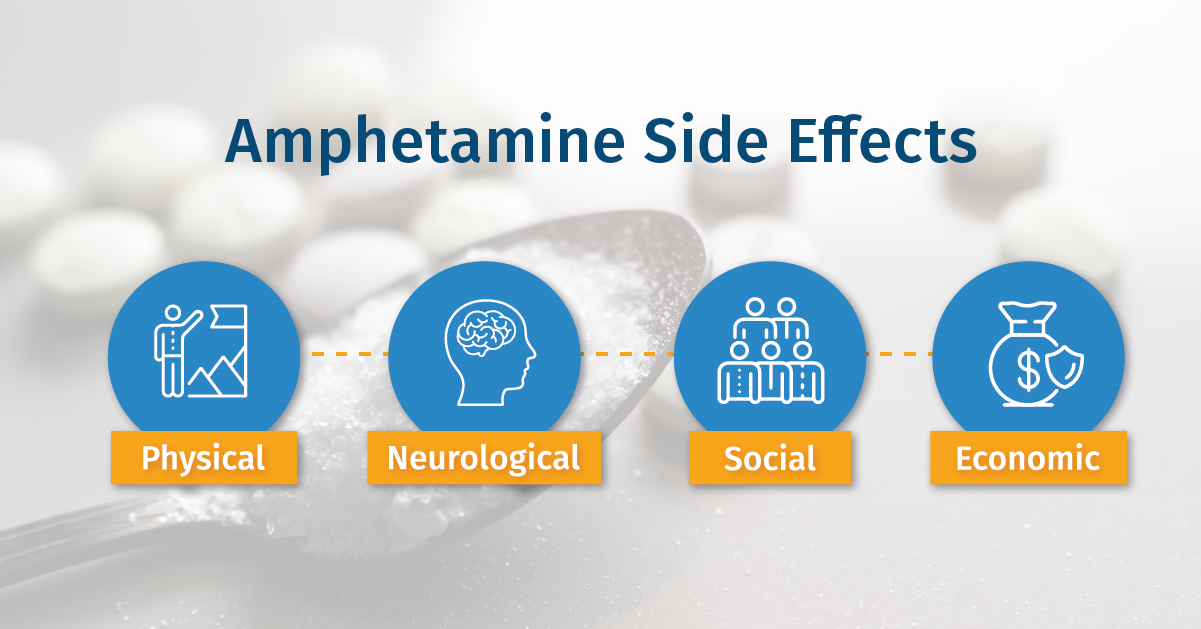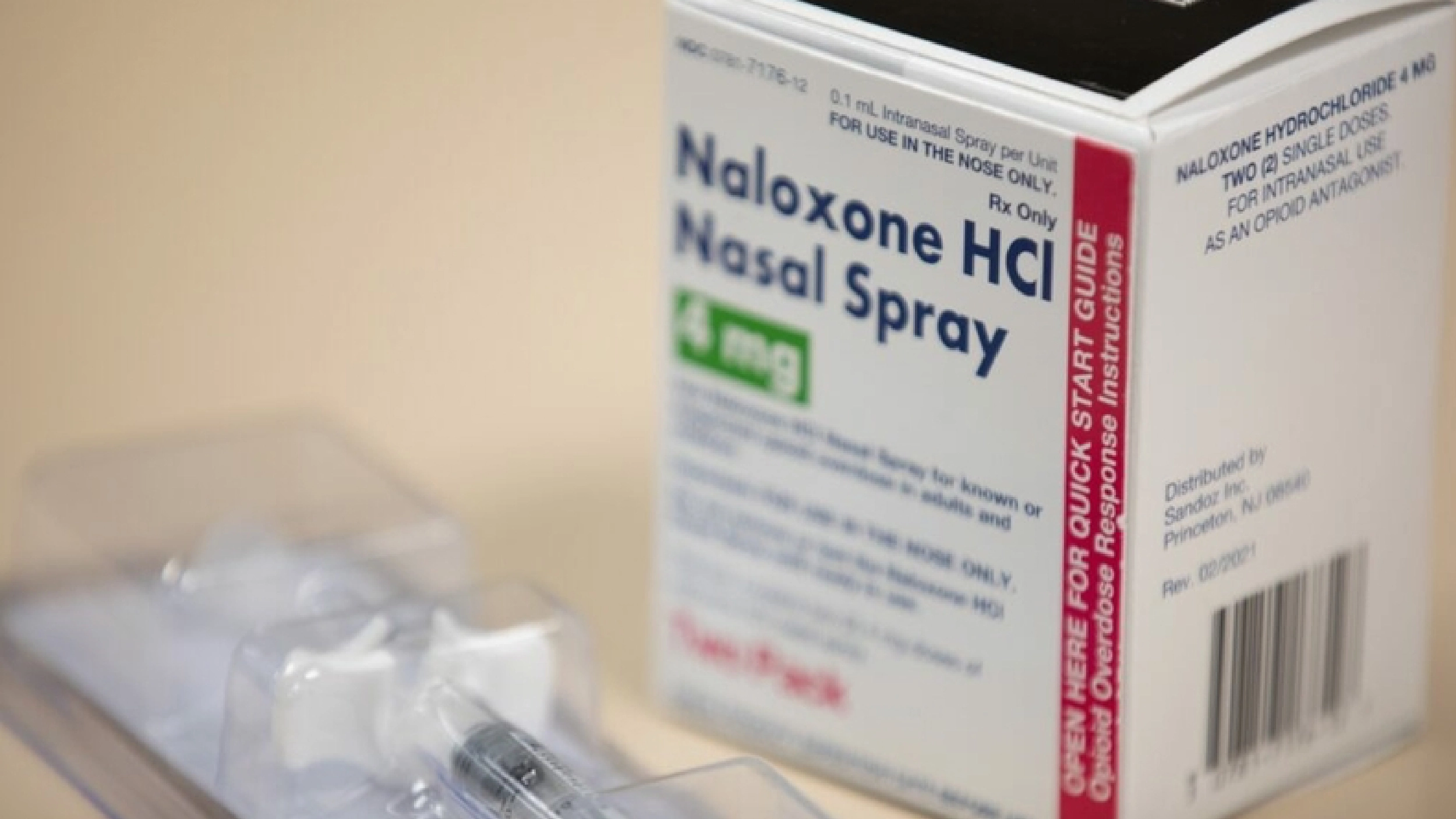
A Guide To Repairing Family Relationships
Discover expert tips for repairing family relationships and fostering healthy connections with The Recovery Team.

Amphetamine, a powerful stimulant, impacts the brain’s neurotransmitters, such as dopamine and norepinephrine. Its potential for addiction arises from the rapid release of these neurotransmitters, creating a sense of euphoria and increased alertness. This heightened pleasure reinforces a cycle of use.
Abrupt cessation often results in withdrawal symptoms, intensifying the desire to continue use. Learning amphetamine’s impact on the brain shows its’ addictive potential, stressing the need for cautious use.
Amphetamine is a mighty stimulant that affects the neurotransmitters in the brain. Here’s what you need to know:
The Recovery Team is a dedicated treatment facility offering comprehensive behavioral therapies to aid individuals in overcoming addiction challenges. Contact us at (800) 817-1247 to foster a successful recovery journey.
Amphetamines are potent stimulant drugs that affect the central nervous system. Medically, they treat conditions like attention deficit hyperactivity disorder (ADHD) and narcolepsy. However, misuse can lead to significant negative consequences.
Prolonged amphetamine use may result in adverse physical and mental health effects. Their potential for addiction poses a substantial risk, as the body can develop tolerance, requiring higher doses over time.
Additionally, amphetamines can be habit-forming, with the potential for abuse and dependence. Use them only as healthcare professionals prescribe, as misuse can have serious health consequences.
Amphetamines are addictive due to their impact on neurotransmitters (dopamine and norepinephrine) in the brain. When ingested, they prompt a rapid release of these chemicals, creating feelings of pleasure and heightened alertness.
The brain, seeking this reward, adapts by reducing natural dopamine production. This adjustment leads to dependence, as the person requires more amphetamines to experience the same pleasure.
Tolerance develops, and the brain craves the drug to maintain a sense of well-being. The cycle of use, reward, and tolerance reinforces addictive behavior. Identifying these neurological mechanisms is vital for understanding the addictive nature of amphetamines.
Amphetamines function by stimulating the release of neurotransmitters in the brain, particularly dopamine and norepinephrine. These chemicals play key roles in mood, attention, and alertness.
When amphetamines are introduced into the system, they cause nerve cells to emit large amounts of these neurotransmitters, leading to increased feelings of pleasure and heightened focus. This surge in neurotransmitters enhances communication between nerve cells.
However, over time, the brain adapts by producing less natural neurotransmitters. This adaptation results in dependence, as the individual relies on amphetamines to maintain normal brain function.
Amphetamine addiction involves observing certain signs and symptoms.
Amphetamine addiction poses serious side effects and risks. Physically, it can lead to a high heart rate, elevated blood pressure, weight loss, and disrupted sleep patterns. Behavioral changes may include hyperactivity, impulsivity, and repetitive actions.
Psychologically, individuals may experience heightened anxiety, irritability, and difficulty concentrating. Socially, responsibilities may be neglected, withdrawn from activities, and strained relationships. Cognitive effects range from memory problems to poor decision-making.
Long-term risks encompass cardiovascular issues, psychiatric disorders, and potential overdose. Mitigate the health and social impacts of amphetamine addiction by promoting awareness.
Amphetamine abuse takes a toll on the body, leading to various physical impacts. The stimulant increases heart rate and blood pressure, straining the cardiovascular system.
This stress can result in long-term damage, contributing to heart issues. Weight loss is expected due to suppressed appetite, negatively affecting overall health. The disrupted sleep patterns further impact physical well-being, impairing the body’s ability to recover and rejuvenate. The mixture of these factors may result in fatigue, weakened immune function, and a grown susceptibility to illness.
Amphetamine addiction can harm the brain. It disrupts the release of neurotransmitters, affecting mood and behavior. Dopamine, a feel-good chemical, is overproduced initially, causing euphoria.
However, repeated use depletes dopamine, leading to depression. Memory and attention suffer due to altered neurotransmitter levels. Chronic use damages neurons, impacting learning and decision-making. Long-term effects include anxiety, paranoia, and aggression. Withdrawal exacerbates these issues. Seek professional help for addiction’s neurological toll.
Amphetamine addiction strains society and wallets. Job productivity declines due to impaired focus and absenteeism. Increased healthcare costs burden the economy as addiction leads to medical issues. Legal troubles rise, overloading the judicial system.
Families face a financial strain supporting affected members. Employers spend more on healthcare for addicted employees, affecting overall business success.
Public resources are diverted to manage addiction-related problems, impacting community well-being. Society pays a hefty price, both economically and socially, for the consequences of amphetamine addiction.
Amphetamine addiction treatment involves a multi-faceted approach to address physical and psychological aspects. Seeking professional guidance is essential to tailor the treatment approach to individual circumstances, promoting a sustainable and prosperous recovery journey.
Detox is the initial step, focusing on safely managing withdrawal symptoms. Under medical supervision, individuals gradually eliminate amphetamines from their system.
Medical professionals may provide medications to ease withdrawal discomfort and ensure a safer process. Detox aims to stabilize the individual physically before moving to the next phase of treatment.
Therapy plays an integral role in addressing the psychological aspects of amphetamine addiction. Cognitive behavioral therapy (CBT) is commonly employed to explore and modify thought habits and behaviors associated with substance use.
Counseling helps individuals develop coping strategies, manage triggers, and build resilience. Individual and group therapy sessions provide valuable support and guidance, aiding recovery.
Support groups, such as 12-step programs like Narcotics Anonymous (NA), create a sense of community and shared understanding. These groups offer a platform for individuals in recovery to share experiences, gain insights, and receive motivation from peers who have faced similar challenges. Support groups foster accountability, reducing feelings of isolation often experienced during recovery.
Comprehensive treatment plans often integrate these components, addressing the physical and psychological dimensions of amphetamine addiction. The duration of treatment varies based on personal needs, with ongoing therapy and support group participation crucial for long-term recovery.
Seek professional help for amphetamine-related concerns when noticing changes in physical health, like increased heart rate or weight loss. If behavioral shifts include hyperactivity, impulsivity, or withdrawal from social activities, it’s a sign to consult experts.
Psychological symptoms such as heightened anxiety, irritability, or difficulty concentrating indicate the need for professional intervention. When relationships suffer, responsibilities are neglected, and decision-making becomes impaired, seeking help is important to recover soon.
Persistent disruptions in sleep patterns and cognitive decline are also indicators. If you or someone you know experiences these signs, consulting healthcare professionals or addiction specialists can provide guidance and support.
The Recovery Team is where resilience meets recovery. Access our varying levels of care, each meticulously crafted to empower your journey.
Our residential programs provide a supportive haven for profound healing, while our intensive outpatient option ensures flexible, effective care.
Through our specialized and all-encompassing services, we diligently tackle co-occurring issues. Cognitive behavioral therapy is our guiding light toward transformation, a potent tool for reshaping thoughts and behaviors.
Transform your life free from the grip of addiction. Contact us at (800) 817-1247 for further assistance.

Discover expert tips for repairing family relationships and fostering healthy connections with The Recovery Team.

Discover practical tips on how to set boundaries with people in this expert guide from The Recovery Team.

Naloxone saves lives. The Recovery Team shares how to reverse an opioid overdose with this drug.
Amphetamines, including drugs like Adderall, impact the brain and pose risks of substance use disorder. The National Institute on Drug Abuse notes a high potential for abuse, especially among college students.
Doctors prescribe amphetamines for medical conditions, but misuse can lead to drug abuse. Long-term use may result in amphetamine dependence and mental illness.
The American Psychiatric Association lists health problems and symptoms of withdrawal. Different types of amphetamines, often in tablet form, are used both recreationally and for medical purposes. Treatment options, including group therapy and medical professionals, exist for those facing amphetamine-related health conditions in the United States.
Amphetamine addiction exhibits clear signs. First, watch for increased tolerance, needing more for the same effect. Regular use can lead to neglect of responsibilities and a decline in performance at work or school.
Persistent use despite negative consequences, like health issues or strained relationships, is a red flag. Look for changes in behavior, such as heightened irritability or mood swings.
Individuals addicted to amphetamines often struggle with maintaining focus and experience disruptions in sleep patterns. Withdrawal symptoms, like fatigue and depression, may surface when not used.
Prescription amphetamines, like Adderall, have medical uses for conditions such as ADHD. However, when misused for their speed or stimulating effects, they can lead to substance abuse and become addictive.
Studies show that long-term use, especially in high school and young adults, may result in addiction. The Recovery Team, a treatment facility, offers behavioral therapies aiding recovery.
Regular use of prescription amphetamines, exceeding prescribed dosages, poses physical and mental health risks. Street names for illegal amphetamines include methamphetamine. If you or others face amphetamine misuse, seek help from a health professional or treatment center promptly, as larger amounts can cause devastating effects and even a medical emergency.